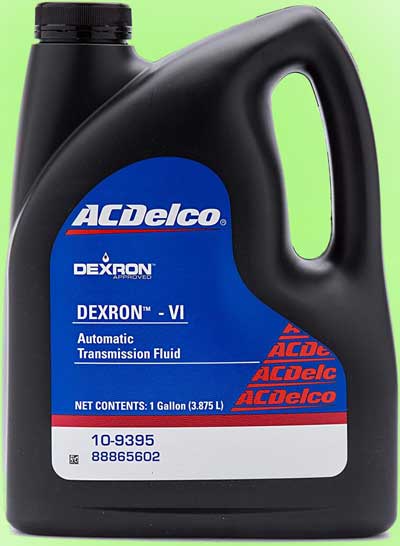Your Guide to Finding the Perfect Toyota WS Transmission Fluid Equivalent
The perfect Toyota WS transmission fluid equivalents are Valvoline MaxLife Transmission Fluid, Castrol Transmax Transmission Fluid, and Royal Purple Synthetic Transmission Fluid. However, we’ll compare the atf-ws fluid with aftermarket substitutes.

Toyota WS Transmission Fluid Equivalent
Here is indetails about Toyota corolla ws equivalent:
Valvoline MaxLife Multi-Vehicle Atf Transmission Fluid is a perfect replacement for toyota vehicle owners those seeking exceptional performance and longevity. Its advanced formula is compatible with many toyota vehicles, providing superior protection and smooth shifting.
Whether you’re looking to extend your transmission’s life of the vehicle or improve its overall performance, valvoline maxlife atf delivers on all fronts. Recommended for: Ford MERCON LV, tacoma, Toyota and lexus scion Type T, Toyota T-IV,.
However, Castrol Transmax Synthetic ATF Transmission Fluid 1 Quart is also a trusted name in the automotive world. This fluid ensures smooth gear changes and excellent thermal stability. With its precision engineering and brand reputation, Castrol Transmax is a reliable choice for maintaining your transmission’s health and transmission performance.

Last but not least, the Royal Purple Full Synthetic Transmission Fluid stands out with its high-performance lubricant formula. It advanced additives that helps to prevent transmission wear, reduced friction, and improved shifting performance.
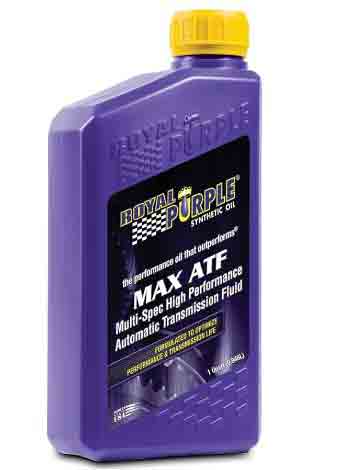
If you’re looking to optimize your transmission’s efficiency and extend its lifespan, Royal Purple Synthetic Transmission Fluid is a premium choice that won’t disappoint.
Genuine Toyota WS,Transmission Fluid, an OEM approved choice, safeguards your vehicle’s transmission from shudder and help prevent premature wear.
Its advanced additives ensure optimal performance and extend the life of the car, preventing costly repairs. Trust in Toyota’s quality fluid for smooth, trouble-free shifting and long-lasting transmission health.
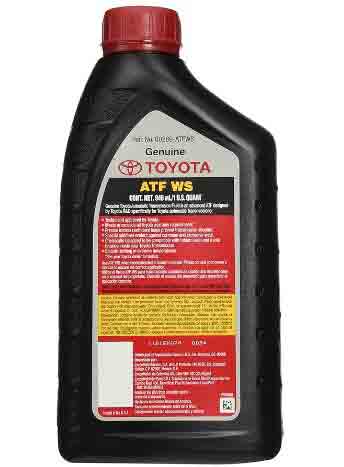
What Is Type Ws Transmission Fluid? What Does Ws Mean In Oil?
Type WS transmission fluid, commonly known as Toyota WS (World Standard) transmission fluid, is a specific type of automatic transmission fluid (ATF) developed by Toyota for use in their vehicles.
The “WS” stands for “World Standard,” indicating that it is designed to meet the lubrication and performance requirements of Toyota’s global automotive lineup. WS fluid is a low viscosity ATF, which means it has a thinner consistency compared to traditional ATF.
This low viscosity formula ensures smoother and more efficient transmission operation, improving fuel efficiency and reducing friction. It is crucial for Toyota owners to use the WS fluid specification to maintain their vehicles’ transmission systems properly.
What Is The Difference Between Atf Type Iv And Ws?
The main difference between ATF Type IV and ATF WS is their composition. ATF Type IV is a non-synthetic automatic transmission fluid, while ATF WS is a fully synthetic transmission fluid.
The synthetic formulation of ATF WS generally offers better performance and durability in modern transmissions compared to non-synthetic ATF Type IV.
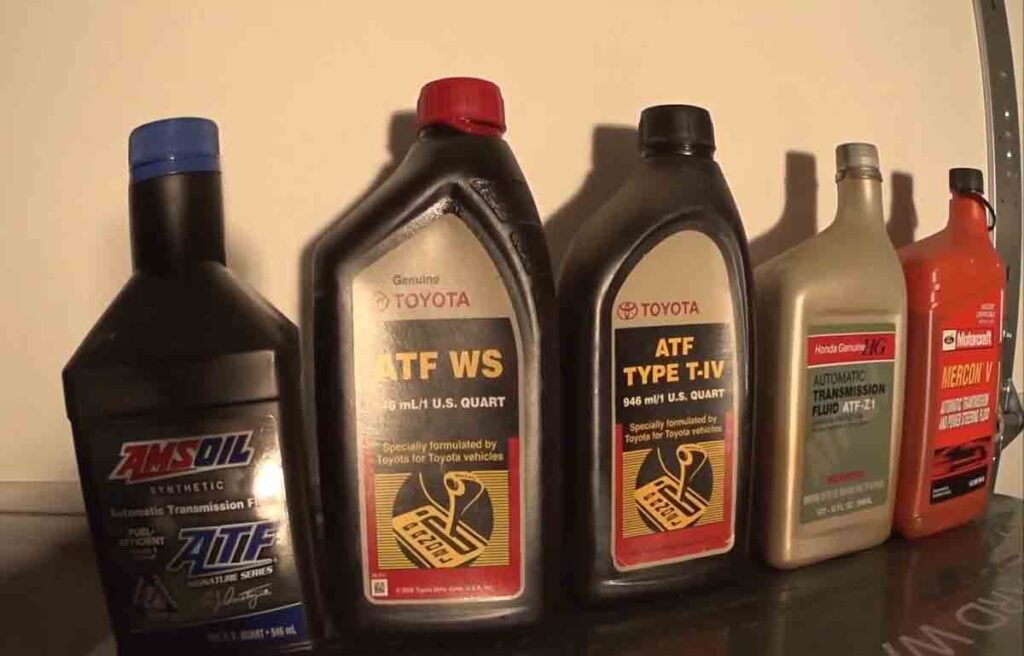
Read More About Wss M97B44 D2 Equivalent: A Comprehensive Overview
Why might you need an alternative to WS transmission fluid?
There are several reasons why you might need an alternative to WS (World Standard) transmission fluid for your Toyota or Lexus vehicle:
Cost: Genuine WS transmission fluid can be expensive. Some vehicle owners may seek more affordable options that still meet the necessary specifications.
Availability: In some regions, finding WS transmission fluid may be challenging, leading drivers to explore alternatives that are more readily available.
Emergency Situations: If you encounter a transmission fluid issue while on the road and cannot access genuine WS fluid, you may need a temporary substitute to prevent further damage.
Maintenance Convenience: Some drivers prefer using a more common transmission fluid type for convenience when performing DIY maintenance or repairs.
Compatibility with Multiple Vehicles: If you own multiple vehicles from different manufacturers and want to streamline your maintenance process, you might look for a universal transmission fluid equivalent that works for multiple car brands.
Factors to Consider When Selecting a Ws Transmission Fluid Equivalent
Transmission Type and Compatibility
Your vehicle’s transmission type is a pivotal factor. Automatic and manual transmissions have distinct requirements, so ensure the fluid you choose aligns perfectly with your transmission type. Compatibility is the bedrock for optimal performance and longevity.
Manufacturer Specifications
Always consult your vehicle’s manual or the manufacturer’s recommendations. They specify the ideal transmission fluid for your make and model. Deviating from these guidelines could lead to subpar performance or even damage.
Fluid Quality and Brand Reputation
Not all transmission fluids are created equal. Prioritize reputable brands known for their quality and durability. Opting for trusted names in the industry assures you’re getting a product that meets or exceeds industry standards.
Viscosity and Temperature Range
Viscosity matters greatly; it impacts the fluid’s ability to flow in varying temperatures. Choose a fluid that suits your climate – whether you’re in extreme heat or frigid cold, the fluid should perform consistently.
Additives and Performance Enhancers
Some transmission fluids are enriched with additives designed to enhance performance, reduce wear, and improve shifting. Evaluate these additional benefits, especially if you’re looking to optimize your transmission’s health and efficiency.
Maintenance and Service Intervals
Consider the ease of maintenance and the recommended service intervals. A fluid that requires less frequent changes can save you time and provide better experience.
Driving Conditions and Usage
Assess your driving habits and conditions. If you frequently tow heavy loads, commute in stop-and-go traffic, or engage in performance driving, your transmission may have different needs. Select a fluid tailored to your specific usage to ensure peak performance and protection.
Budget and Cost Considerations
While quality should be a top priority, your budget is a practical consideration. Transmission fluids come in a range of price points. Balancing quality and affordability is crucial, so explore options that meet both your vehicle’s needs and your financial constraints.
Read Also What Oil Is Equivalent To Honda GN4 Oil? Find The Perfect Motor Oil
How to Change Transmission Fluid
Changing transmission fluid is essential for maintaining your vehicle’s performance. Here’s a simple guide:
Step 1: Locate the transmission fluid pan underneath the vehicle.
Step 2: Place a drain pan beneath the transmission pan.
Step 3: Carefully remove the pan’s bolts to drain the old fluid into the drain pan.
Step 4: Clean the pan thoroughly, removing any debris or residue.
Step 5: Replace the pan gasket if necessary.
Step 6: Reattach the pan securely.
Step 7: Locate the transmission fluid dipstick, typically near the engine.
Step 8: Use a funnel to add new transmission fluid into the dipstick tube.
Step 9: Check the owner’s manual for the right type of fluid and the recommended quantity.
Step 10: Start the engine, shift through gears, and check the fluid level using the dipstick.
Step 11: Top up as needed and you’re done. No flushing or changing the entire system is required.
FAQ
Do you have to use the same transmission fluid?
It’s best to use the transmission fluid recommended by your vehicle’s manufacturer for optimal performance and longevity.
What happens if you mix transmission fluid types?
Mixing different transmission fluid types can lead to reduced performance, potential damage, and costly repairs.
What is the difference between Type IV and WS?
Type IV and WS are both transmission fluid specifications used by Toyota, but WS is a more advanced and specific formulation, so it’s crucial to use the correct one specified for your vehicle.
Can you use different transmission fluids?
While it’s possible to use different transmission fluids, it’s not recommended as it can compromise your transmission’s performance and durability.
What is Type WS transmission fluid?
Type WS transmission fluid is a specialized automatic transmission fluid formulated by Toyota for their vehicles
Is dexron VI compatible with Toyota ATF WS?
Dexron VI is a good alternative to Toyota WS ATF fluid, as it meets the specifications required for many Toyota vehicles. It offers compatibility and performance, making it a cost-effective choice for those seeking a reliable automatic transmission fluid.
Who makes Toyota WS fluid?
Toyota WS (World Standard) transmission fluid is manufactured by Aisin, a Japanese automotive component supplier. Aisin is a well-known and trusted supplier of transmission and other automotive components, including their transmission fluids like WS.
What is the recommended time for drain and fill?
A common recommendation is to perform a drain and fill every 30,000 miles (approximately 48,000 kilometers) for routine maintenance, but it’s essential to consult your vehicle’s owner’s manual for the manufacturer’s specific guidelines.

Last Words
In the intricate world of transmissions, the choice of fluid can be the difference between smooth journeys and costly breakdowns. When it comes to the vital WS Transmission Fluid Equivalent, precision matters.
The path to preserving your vehicle’s well-being is paved with the right fluid—one that aligns seamlessly with manufacturer specifications.


